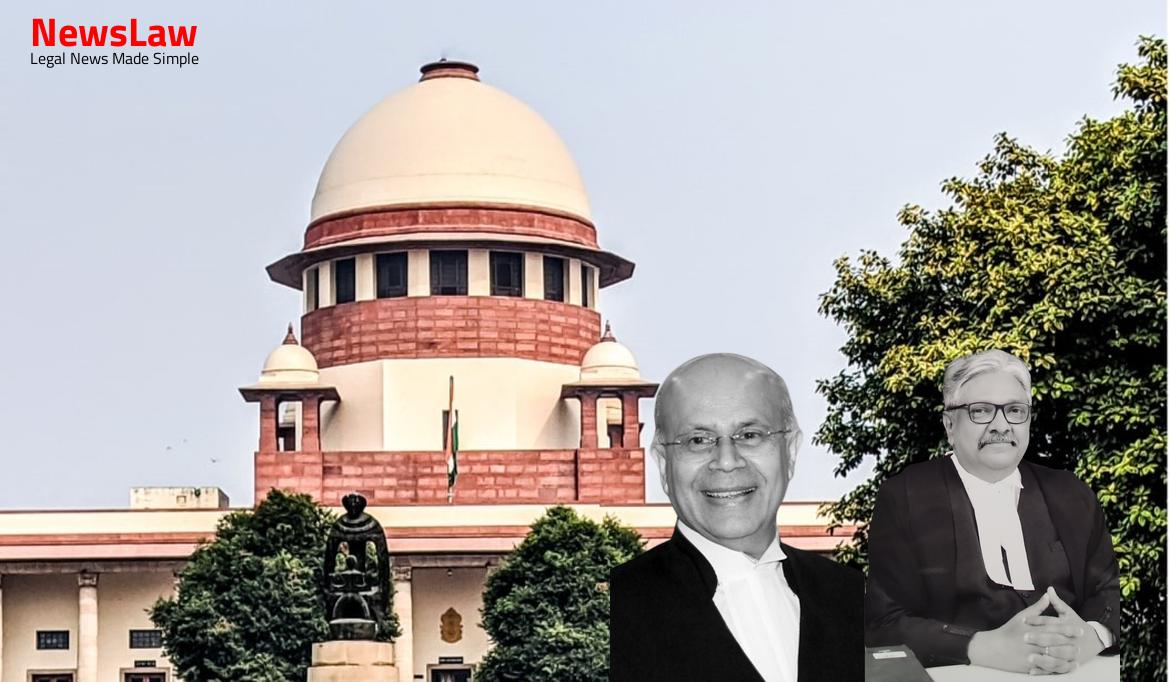Delve into the detailed legal analysis of a recent court decision regarding the interpretation of Section 24(2) of the Act, 2013, in the context of land acquisition proceedings. The court’s in-depth examination of compensation, possession, and procedural requirements sheds light on crucial aspects of land acquisition law. Stay informed about the intricacies of this legal issue and its implications for both authorities and landowners.
Analysis
- The Delhi Development Authority has appealed the High Court’s decision in a writ petition related to the lapse of land acquisition under Section 24(2) of the 2013 Act.
- The High Court ruled that the acquisition had lapsed due to non-payment of compensation, despite possession of the land being taken by the authorities in 2006.
- This decision of the High Court is in contrast to a previous Constitution Bench decision in the case of Indore Development Authority Vs. Manoharlal and Ors. (2020) 8 SCC 129.
- The Supreme Court, in paragraph 366 of the judgment, held that if the award was not made as of 1-1-2014, there is no lapse of proceedings and compensation must be determined under the provisions of the 2013 Act.
- Compensation must be paid in case possession has been taken under Section 16 of the 1894 Act.
- Once possession has been taken, there is no divesting under Section 24(2) of the 2013 Act.
- The lapse provision of Section 24(2) applies when authorities fail to take possession and pay compensation for five years or more before the 2013 Act came into force.
- Interest can be granted if the obligation under Section 31 of the Land Acquisition Act, 1894 has not been fulfilled.
- The expression ‘paid’ in Section 24(2) of the 2013 Act does not include a deposit of compensation in court.
- Non-deposit of compensation does not result in the lapse of land acquisition proceedings.
- If compensation has been paid but possession has not been taken, there is no lapse.
- In case of non-deposit for the majority of holdings, compensation under the 2013 Act must be paid to landowners as on the date of notification for land acquisition under Section 4 of the 1894 Act.
- The deemed lapse of land acquisition proceedings under Section 24(2) occurs when possession of land has not been taken, and compensation has not been paid due to inaction of authorities for five years or more prior to the 2013 Act.
- The proviso to Section 24(2) is to be treated as part of Section 24(2), not part of Section 24(1)(b).
- If compensation has not been paid to the original landowner, Section 24(2) of the 2013 Act applies, leading to the deemed lapse of acquisition.
- Tendering compensation under Section 31(1) of the 1894 Act fulfills the obligation to pay, preventing the claim of acquisition lapse under Section 24(2).
- Landowners who refused compensation or sought reference for higher compensation cannot claim acquisition lapse under Section 24(2) of the 2013 Act.
- The word ‘or’ in Section 24(2) between possession and compensation should be interpreted as ‘nor’ or ‘and’.
- The mode of taking possession under the 1894 Act and Section 24(2) involves the drawing of an inquest report/memorandum.
- Section 24(2) of the 2013 Act does not create a new cause of action to challenge concluded land acquisition proceedings.
- The application of Section 24 is limited to proceedings ongoing on the date of enforcement of the 2013 Act (1-1-2014).
- It does not revive expired claims or reopen completed proceedings.
- Landowners cannot question the legality of possession taking or compensation deposit through Section 24.
Also Read: Quashing of Enhanced Tuition Fee in Private Medical Colleges
Decision
- The present appeal succeeds
- Pending applications also stand disposed of
- The appeal is allowed
- The impugned judgment and order passed by the High Court ordering lapse of the acquisition under Section 24(2) of the Act, 2013 is quashed and set aside
- Consequently, the original writ petition is dismissed
- No costs are awarded
Also Read: Final Decision and Disclosure in Collegium Meetings
Case Title: DELHI DEVELOPMENT AUTHORITY Vs. KRISHAN LAL ARORA (2022 INSC 1154)
Case Number: C.A. No.-007960-007960 / 2022



